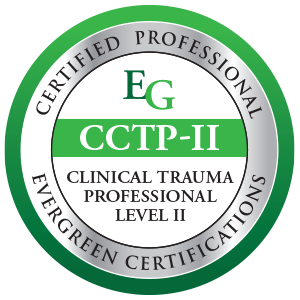Dr Ruth Lanius is a globally recognised trailblazer in trauma research. Her pioneering work has profoundly enhanced the ways we treat trauma, giving us more effective, empathetic, and science-backed ways to help our clients heal.
And now she’s hand-picked an elite team of the world’s leading specialists who are dedicated to relentlessly expanding the scope and efficacy of trauma treatment...
...to show you how to take today’s leading-edge, research-backed insights and turn them into easy-to-apply interventions with real-world applications.
So if you want to get equipped with the ultimate holistic trauma healing approach that will help you give your clients faster relief, healing, growth and happiness than you ever thought possible...
This is the programme for you.
Sign up today to supercharge your abilities as a trauma healer and join their ranks as a Complex Trauma Treatment Specialist.
Online Intensive With Dr Ruth Lanius & 30+ World Renowned Trauma Specialists
Usually £3,375.00
Early Bird Price: Just £199.99 Today!
Earn up to 23 CPD hours!
Dear Colleague,
Trauma can leave lasting imprints on our lives. The emotional wounds from early traumatic experiences and attachment struggles often impact everything—from how we think, to how we regulate emotions, to our ability to form meaningful relationships.
Some individuals face constant, overwhelming fear and terror, while others feel detached, as if they are just going through the motions of life. These individuals deserve so much more, and that is why I am deeply committed to supporting traumatised individuals as they navigate their healing journey.
By joining this course, you will have direct access to me and my world-renowned faculty of over 30 trauma treatment experts. We are here to support you every step of the way, helping you build the skills, confidence, and credentials needed to become a Certified Complex Trauma Specialist.
With this cutting-edge knowledge, you will be empowered to help trauma survivors rediscover themselves, rebuild their connections with loved ones, and take back control of their lives.
I sincerely hope you can join us.
Yours,

- Ruth Lanius
World leading trauma researcher and clinician scientist
Psychiatry Professor, Harris-Woodman Chair in Mind-Body Medicine and Director of the Clinical Research Program at the Western University of Canada
Online Intensive With Dr Ruth Lanius & 30+ World Renowned Trauma Specialists
Usually £3,375.00
Early Bird Price: Just £199.99 Today!
Earn up to 23 CPD hours!
Upon registration, you’ll gain instant and on-demand access to all seven comprehensive modules, which you can complete at your own pace, in sequence or in any order you’d like.
Each module contains step-by-step skills sessions and other bonus content that will give you the theoretical and practical mastery you need to use them with your trauma clients.

Christine A. Courtois gives you a personalised roadmap for treating Complex-PTSD with her practice-proven PRISM model. Using this pragmatic approach, you’ll get diagnostic tools, treatment goals, risk management and guiding principles, all derived from the leading principle: ‘Do no more harm!’



Give your dissociative clients the targeted treatment they need for more effective clinical progress! Dissociation continues to attract a negative stigma – or gets missed in therapy entirely. Bethany Brand, Paul Frewen and Benjamin Pandev-Girard explain how to monitor for dissociation, avoid misdiagnosis, and integrate sensory processing for superior results.

Master actionable insights and techniques into dissociation, suicidality and more with Karlen Lyons-Ruth. She shows you the developmental trajectories toward dissociation, suicidality and diagnosis of BPD. Practicable insights include the traumatic impact of maternal withdrawal, and why treatment planning must distinguish between fear of abandonment and fear of attack, and much more.

Help your clients out of the the self-alienation and fragmentation that often impose upon dissociative clients. Drawing on attachment theory, Janina Fisher gives you new insights into the causes and functions of dissociation so you can take a more informed and effective approach to treatment.

Dan Hughes shows you how to turn ruptures into opportunities for healing and growth. Increase your capabilities at nurturing regulating, reciprocal and reparative therapeutic relationships so you can deepen rapport and increase trust.

Help your clients overcome their overwhelming fears of attachment, abandonment and more. Deborah L. Korn focuses on the stabilisation phase in treatment and digs deeper into the phobias and blocking beliefs that can compromise treatment at the outset so you’re better prepared to work with them.

Stop confusing ‘traumatic attachment’ and ‘disorganised attachment’! Benedetto Farina reveals how to spot the similarities and differences of attachment trauma across six areas of difficulty in therapy so you can adapt your approach for optimal progress.

Avoid the common pitfalls therapists fall into when working with dissociation. Drawing on today’s groundbreaking neuroscience, Ruth Lanius guides you through the effects of trauma across four dimensions of consciousness – time, thought, body and emotion. You’ll discover how to manage dissociative flashbacks and working directly with the brain’s default mode network.

Gabor Maté shows you his unique approach to help clients find freedom from addictive behaviours. You’ll discover how to delve into your clients' earliest experiences of trauma and explore how their addictions are often an attempt to help relieve their emotional pain... and how this realisation can help them to heal.

Kathy Steele gives you the comprehensive roadmap to working with shame. You’ll work with trauma-related perfectionism so you can help those clients who are caught in the painful conflict between wanting to hide and wanting to be seen.

Meditation can be a powerful therapeutic tool, but it must be used correctly, or it can harm more than help. Dharma teacher Brother Phap Linh takes you through the vital concept of trauma-sensitive mindfulness. Discover which meditation practices are recommended and which you should avoid with your trauma clients...

Enliven and empower your clients with these practice-proven somatic interventions. Cathy Malchiodi equips you with effective techniques such as ‘holding the stone’ and the ’circle of capacity’ to safely introduce touch and support interoception with your clients. You’ll discover how to address freeze and collapse responses through using materials such as wool, clay and much more!

Guide your clients towards new movement patterns that can promote health and wellness! Elizabeth Warner demonstrates how movement is crucial to trauma recovery and how the therapy space can help or hinder your work with clients. Through the power of spontaneous movement, you’ll help your clients create a new narrative and replace detrimental motor memories with healthier alternatives.

Integrate these easy-to-apply somatic interventions for immediate results! Pat Ogden highlights the risks and rewards of using somatic interventions in complex trauma, drawing on the structural model of dissociation. She shows you how to recognise and integrate different parts as they manifest through the body, including how to use directed mindfulness and self-touch to communicate with, rather than override, defensive parts.

Do you know want to know what ‘IFS therapy on steroids’ looks like? Frank Anderson takes you through several skills that many IFS beginners struggle with including mapping systems, direct access and matching the part’s method of communication in a brand-new way that can supercharge your understanding (and your results!).

Can you use a client’s brain-wave patterns to move them away from fear and toward self-regulation? The answer is yes! Sebern Fisher shows you exactly how using the groundbreaking power of neurofeedback that can regulate and empower your clients.

Master the modality that will help you treat not just trauma, but the shock that often precedes it for supercharged results! Frank Corrigan takes us through his revolutionary Deep Brain Reorienting modality that targets the shock response that often occurs in the first milliseconds of trauma - that left unaddressed, can hinder progress and stall results.


Hip hop isn’t just a form of expression, it can have massive healing benefits. J.C. Hall and Raphael Travis take you through the therapeutic applications of hip hop, including the healing power of rhythm, witnessing, and resilience narratives.

Make sure your approach is culturally sensitive and informed for optimal results with clients. Drawing on minority stress theory, Wendy D’Andrea, outlines the types of discrimination, psychological risk factors and biological and affective mechanisms faced by marginalised communities so you can ensure you’re holding a position of cultural humility.


Debra Chatman-Finley and Gliceria Pérez go deeper into cultural sensitivity, particularly around racial trauma. They take you through issues such as including white supremacy, post-traumatic slavery syndrome and microaggressions. Using tools to self-assess beliefs and bodily reactivity, you can build awareness and understanding of your own racial identity and implicit biases for deeper self-awareness.

There’s much wisdom to be found outside of traditional treatment methods. Patricia Vickers grounds her trauma work in indigenous ancestral law and teachings combined with neurofeedback. She shows you the connection between Deep Brain Reorienting and indigenous vision quest fasts and how their methods to respond to suicidality, self-harm, transgenerational trauma and internalised oppression can be supported by modern theory and neuroscience.

Human Devastation Syndrome. Psychological Brokenness Syndrome. Regional clinicians in war-torn areas are proposing new trauma classifications to capture and culturally express the distress they are witnessing. Michael Niconchuk emphasises the multiple and overlapping emergencies experienced by refugees and forced migrants. Tips for clinicians include not focusing on war or natural disaster at the expense of integrating post-disaster experiences – such as legal limbo, poverty and xenophobia.

With a specific focus on adapting your approach for the global majority, Eboni Webb reviews what we know about trauma and its impact on the brain. You’ll learn how to integrate healthy attachment and somatic techniques in a family systems model. This includes responding effectively to self-invalidation, emotional vulnerability, unrelenting crises and active passivity.

Facilitate increased rapport for deeper results through psychobiological attunement! Allan Schore shows you how to refocus from content to affect, interpretation to attunement, technique to process, and cognitive insight to spontaneous emotional conversation in this paradigm shift in our models of therapeutic change.

Discover the theoretical power of psychedelics in therapy with Michael Mithoefer. It used to be thought that individuals with complex PTSD would not respond well to psychedelics... but research is now suggesting the opposite. Drawing on his work with veterans, you’ll discover the theory behind how psychedelics can catalyse therapy and facilitate parts work.
Online Intensive With Dr Ruth Lanius & 30+ World Renowned Trauma Specialists
Usually £3,375.00
Early Bird Price: Just £199.99 Today!
Earn up to 23 CPD hours!
- A vast array of evidence-based, practice-proven interventions from today’s most effective approaches and modalities
- Real-world applications that are specifically tailored for practicing trauma clinicians
- Advanced tools that will enable you to reliably assess, stabilise, regulate and process your client's trauma and emotions
- Expert-led content from the world’s leading trauma treatment specialists who bring cutting-edge insights and groundbreaking research to every session
- Personal and professional growth that will facilitate deeper self-awareness and self-care to enhance your results whilst avoiding vicarious trauma and burnout
- The education you need to become a Certified Clinical Trauma Professional Level II: Complex Trauma (See below for details)
- And so much more!

In just three easy steps, you can become a Certified Clinical Trauma Professional Level II!
Step 1: Watch the online course content on-demand.
Step 2: Complete the CPD tests and instantly print your certificates of completion.
Step 3: Submit the Certification Questionnaire included in this training, and your application is complete to Evergreen Certifications.
*Professional and clinical experience standards apply. Learn more at https://www.evergreencertifications.com/uk/certification/certified-clinical-trauma-professional-level-ii-complex-trauma.
Please note: This course meets the educational requirements for the prerequisite Level 1 and Level 2 trainings. The course must be completed in full before applying for certification.

26 Skills Sessions
You'll have unlimited access to all videos and materials online. You decide when the time is right to learn.

Online Community

Earn CPD Hours

Earn Your Trauma Certifications
Online Intensive With Dr Ruth Lanius & 30+ World Renowned Trauma Specialists
Usually £3,375.00
Early Bird Price: Just £199.99 Today!
Earn up to 23 CPD hours!

Ruth A. Lanius, MD, PhD, is a Psychiatry Professor and Harris-Woodman Chair at Western University of Canada, where she is the director of the Clinical Research Program for PTSD. Ruth has over 25 years of clinical and research experience with trauma-related disorders.
She established the Traumatic Stress Service at London Health Sciences Center, a programme that specialises in the treatment of psychological trauma. Ruth has received numerous research and teaching awards, including the Banting Award for Military Health Research. She has published over 150 research articles and book chapters focusing on brain adaptations to psychological trauma and novel adjunct treatments for PTSD.
Ruth regularly lectures on the topic of psychological trauma both nationally and internationally. Ruth has co-authored two books: The Effects of Early Life Trauma on Health and Disease: The Hidden Epidemic and Healing the Traumatized Self: Consciousness, Neuroscience, Treatment. Ruth is a passionate clinician scientist who endeavours to understand the first-person experience of traumatised individuals throughout treatment and how it relates to brain functioning.
Click here for information about Ruth Lanius.
Gabor Maté is a retired physician who, after 20 years of family practice and palliative care experience, worked for over a decade in Vancouver's Downtown East Side with patients challenged by drug addiction and mental illness. The bestselling author of four books published in twenty-seven languages, Gabor is an internationally renowned speaker highly sought after for his expertise on addiction, trauma, childhood development, and the relationship of stress and illness.
JANINA FISHER, PhD
Janina Fisher, PhD, is a licensed clinical psychologist and former instructor, Harvard Medical School. An international expert on the treatment of trauma, she is best known for her work on integrating newer neurobiologically-informed interventions into traditional psychotherapy approaches. Dr. Fisher has also developed her own trauma-informed treatment model, Trauma-Informed Stabilization Treatment or TIST, designed for severe trauma-related issues such as Complex PTSD and Borderline Personality Disorder.
FRANK ANDERSON, MD
Frank Anderson, MD, is a world-renowned trauma treatment expert, Harvard-trained psychiatrist, and psychotherapist. As a global speaker on the treatment of trauma and dissociation, he is passionate about teaching brain-based psychotherapy and integrating current neuroscience knowledge with the Internal Family Systems (IFS) model of therapy. He is the acclaimed author of ‘To Be Loved’, ‘Transcending Trauma’ and coauthor of the ‘Internal Family Systems Skills Training Manual’.
KATHY STEELE, MN, CS
Kathy Steele, MN, CS, is Clinical Director of Metropolitan Counseling Services, a psychotherapy and training center, and is in private practice in Atlanta, Georgia. She is a past President of the International Society for the Study of Trauma and Dissociation. She frequently teaches about trauma and dissociation around the world, and has authored or co-authored numerous publications in the field.
PAT OGDEN, PhD
Pat Ogden, PhD, is a pioneer in somatic psychology and both founder and education director of Sensorimotor Psychotherapy Institute™, an internationally recognized school specialising in somatic-cognitive approaches for the treatment of post-traumatic stress disorder and attachment disturbances. She is co-founder of the Hakomi Institute, past faculty of Naropa University, a clinician, consultant, international lecturer and trainer, and first author of Trauma and the Body: A Sensorimotor Approach to Psychotherapy. Her second book, Sensorimotor Psychotherapy: Interventions for Trauma and Attachment (2015), is a practical guide to integrate Sensorimotor Psychotherapy™ into the treatment of trauma and attachment issues. Dr. Ogden, with colleagues, is currently developing Sensorimotor Psychotherapy™ for children, couples and families.
ALLAN SCHORE, PhD
Dr Allan N. Schore is on the clinical faculty of the Department of Psychiatry and Biobehavioral Sciences, UCLA David Geffen School of Medicine. He is author of three seminal volumes, Affect Regulation and the Origin of the Self, Affect Dysregulation and Disorders of the Self, and Affect Regulation and the Repair of the Self, as well as numerous articles and chapters. He is Editor of the acclaimed Norton Series on Interpersonal Neurobiology, and a reviewer on the editorial staff of 35 journals across a number of scientific and clinical disciplines.
JUDITH HERMAN, MD
Judith Herman, MD, one of the country's leading experts on trauma and abuse, is professor of clinical psychiatry at the Harvard Medical School, and director of training at the Victims of Violence Program at Cambridge Hospital. She is also a founding member of the Women's Mental Health Collective in Massachusetts. Herman was the recipient of the 1996 Lifetime Achievement Award from the International Society for Traumatic Stress Studies.
ELIZABETH WARNER, PsyD
As project director at the Trauma Center at JRI, a center of excellence in trauma treatment, training and research, she oversaw training and consultation in Sensory Motor Arousal Regulation Treatment (SMART) for outpatient, in-home, therapeutic day school, and residential treatment settings in the U.S., Canada and Hong Kong.
BETHANY BRAND, PhD
Bethany Brand, PhD, is a Psychology Professor and the Director of the Clinical Focus programme at Towson University in Baltimore, Maryland, USA. Dr. Brand specialises in the assessment and treatment of trauma related disorders. She has over 30 years of clinical and research experience, including training at Johns Hopkins Hospital, George Washington University Hospital, and at Sheppard Pratt Health System's Trauma Disorders program.
PAUL FREWEN, PhD,
Paul A. Frewen, PhD, is Assistant Professor for the Department of Psychiatry and Psychology, University of Western Ontario. He is also Chair of the Traumatic Stress Section at the Canadian Psychological Association. He has authored 45 papers on trauma, affect regulation, mindfulness, dissociation, and the self, and co-authored Healing the Traumatized Self: Consciousness, Neuroscience & Treatment.
BENJAMIN PANDEV-GIRARD, M.OT.
Benjamin Pandev-Girard, M.OT., is an occupational therapist (OT) from the province of Quebec, and a guest lecturer and mentor at the Université de Sherbrooke. An OT is a trained healthcare worker who helps people with activities (or "occupations") that are important for their everyday lives, for example, body movements, self-care, and leisure activities. Benjamin has a particular interest in the impact of stress and trauma on the development and regulation of emotions, occupational performance and sensory processing.
KARLEN LYONS RUTH, PhD
Karlen Lyons-Ruth, PhD, is Professor of Psychology in the Department of Psychiatry, Harvard Medical School, Director of the Biobehavioral Family Studies Lab, and a supervising psychologist at the Cambridge Hospital. Her work has focused on understanding the adaptations in attachment relationships that occur in high-risk environments over the infancy, childhood, and adolescent periods.
BENEDETTO FARINA, MD, PhD
Benedetto Farina, MD, psychiatrist and psychotherapist, PhD in neuroscience, full professor of Psychopathology and Clinical Psychology at European University of Rome. Member of the Scientific Advisory Board of the International Society for the Study of Trauma and Dissociation, member of the Association for the Study of Attachment and Developmental Psychopathology.
DEBORAH KORN, PsyD
EMDR facilitator and instructor with the EMDR Institute for the past 25 years. She is a co-investigator in an NIMH-funded study of EMDR vs. Prozac in the treatment of PTSD with Bessel van der Kolk, M.D. and lead author on the article Preliminary Evidence of Efficacy for EMDR Resource Development and Installation in the Stabilization Phase of Treatment of Complex Posttraumatic Stress Disorder, in the Journal of Clinical Psychology.
Dr Webb opened the private practice Kairos in Middle Tennessee in July 2010. Kairos, now The Village of Kairos, offers diverse DBT specialisations including DBT for trauma-based disorders and co-occurring disorders. The Village of Kairos has expanded therapy programs, better known as Restorative Services, to include individual and group therapy sessions for adolescents, parents, families, and adults including in-the-moment coaching for patients.
CHRISTINE COURTOIS, PhD
Christine A. Courtois, PhD, a board-certified counselling psychologist, retired from clinical practice in Washington, DC, is now an author and consultant/trainer on trauma psychology and treatment in Bethany Beach, DE, where she is a licensed psychologist. She is known for her work on adult survivors of developmental trauma in childhood complex trauma and its treatment.
FRANK CORRIGAN, MD
Frank Corrigan, MD, began his training in psychiatry in 1977 and was an NHS Consultant Psychiatrist in Scotland from 1985 until 2018, latterly working part-time as a specialist provider of trauma psychotherapy. He now works in private practice in Glasgow and specialises in complex trauma and dissociative disorders.
DEBRA CHATMAN FINLEY, LPC
Debra Chatman-Finley, LPC is a Licensed Professional Counselor and National Board-Certified Counselor in private practice in Montclair, N.J. She is an Adjunct professor at New York University where she teaches Racial and Social Micro Aggressions in Clinical Practice. She is the former Director of Clinical Services at The Resource Center for Women and Their Families, providing counseling services for domestic violence victims.
GLICERIA PÉREZ, LCSW
Gliceria Pérez, LCSW, is a bilingual Licensed Clinical Social Worker with a Master of Social Work degree from Fordham University Graduate School of Social Service. She has over 30 years of experience in social work fields of mental health, trauma, domestic violence, adoption, immigration, and child abuse/neglect.
WENDY D'ANDREA, PhD
Dr D'Andrea's research focuses on the psychobiological alterations associated with exposure to complex trauma. This work has focused on changes in factors such as affect recognition and regulation, attention and cognition, relationship, and identity, with an eye towards using lab-based and physiological methodologies for assessment. Her work also attempts to unpack the contributions of marginalization to ways in which individuals adapt to adversity.
SEBERN FISHER, PhD
Sebern F. Fisher, PhD, is a psychotherapist and neurofeedback practitioner in private practice who specialises in the aftermath of neglect and abuse in early childhood. She focuses on training the traumatised brain to learn its own regulation which it can learn at any age. She trains professionals nationally and internationally on neurofeedback and on the need to integrate neurofeedback with psychotherapy.
CATHY MALCHIODI, PhD
Cathy A. Malchiodi, PhD, is an expressive arts therapist and art therapist who has spent over 30 years working with individuals with traumatic stress and studying how the arts support reparation, integration and recovery from trauma. She is the founder and executive director of the Trauma-Informed Practices and Expressive Arts Therapy Institute that trains mental health and health care practitioners in medical, educational, and community settings and assists in disaster relief and humanitarian efforts throughout the world.
DAN HUGHES, PhD
Dan Hughes, PhD, is a clinical psychologist who founded and developed Dyadic Developmental Psychotherapy (DDP), the treatment of children who have experienced relational trauma within their family and demonstrate ongoing problems related to attachment and trauma. Dan presents and trains in DDP internationally. He is also engaged in extensive training and supervision in the certification of therapists in his treatment model, along with ongoing consultation to various agencies and professionals.
PATRICIA VICKERS, PhD
Patricia Vickers, PhD, grounds her trauma service training and clinical sessions on ancestral law and ancestral teachings of soul loss and soul retrieval and incorporates these understandings in her sessions.
MICHAEL MITHOEFER, MD
Michael Mithoefer, MD, clinical assistant professor of psychiatry at the Medical University of South Carolina. In 2009, he completed & published the first FDA approved clinical trial of MDMA assisted psychotherapy for treatment-resistant PTSD, followed by completion of a Phase II trial. He is overseeing a multisite Phase III study of MDMA-assisted psychotherapy in 13 sites around the US (including the Trauma Research Foundation), and another MDMA-assisted psychotherapy multisite study in Europe and Israel.
BROTHER PHAP LINH
Brother Phap Linh ordained in 2008 and received the lamp transmission in 2016. He currently practices with the Sangha at Upper Hamlet, Plum Village.
RAPHAEL TRAVIS, PhD
Raphael Travis, PhD, is a Professor and MSW Program Director at Texas State University in the School of Social Work. His research, practice and consultancy work emphasise healthy development, resilience, and civic engagement. He also investigates creative arts, especially Hip-Hop culture, as a source of health and well-being for individuals and communities. He is author of the book "The Healing Power of Hip Hop."
J.C. HALL, LCSW
J.C. Hall, LCSW, is a Hip Hop artist and clinical social worker who runs the Hip Hop Therapy Studio program at Mott Haven Community High School. Due to his continued impact over the years and his advocacy for Hip Hop therapy, J.C. won a national Jefferson Award for Outstanding Public Service in 2020.
MICHAEL NICONCHUK, MSc
Michael Niconchuk is a researcher and practitioner at the intersection of psychological trauma recovery, migration, and violence prevention. Trained in security studies, international relations, and social cognition, Michael has worked for more than a decade in the Middle East, Central Asia, and the Balkans to support local capacities to offer evidence-based care for persons affected by violent conflict, extremism, and displacement, including extensive work on innovative community programs and policy to support the healing and wholeness of folks affected by the Syrian conflict as well as the return and rehabilitation of the families of foreign terrorist fighters in the Middle East. He is the author of The Field Guide for Barefoot Psychology and numerous publications on mental health, identity-based violence, and migration.
Register for this intensive online programme without risk. If you're not completely satisfied within 14 days of purchase, give us a call at 01235847393.
We’re that confident you'll find this learning experience to be all that's promised and more than you expected.
Online Intensive With Dr Ruth Lanius & 30+ World Renowned Trauma Specialists
Usually £3,375.00
Early Bird Price: Just £199.99 Today!
Earn up to 23 CPD hours!


